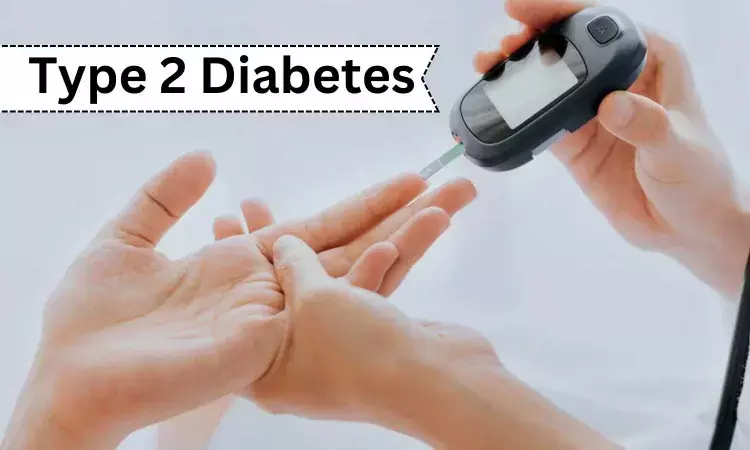- Home
- Medical news & Guidelines
- Anesthesiology
- Cardiology and CTVS
- Critical Care
- Dentistry
- Dermatology
- Diabetes and Endocrinology
- ENT
- Gastroenterology
- Medicine
- Nephrology
- Neurology
- Obstretics-Gynaecology
- Oncology
- Ophthalmology
- Orthopaedics
- Pediatrics-Neonatology
- Psychiatry
- Pulmonology
- Radiology
- Surgery
- Urology
- Laboratory Medicine
- Diet
- Nursing
- Paramedical
- Physiotherapy
- Health news
- Fact Check
- Bone Health Fact Check
- Brain Health Fact Check
- Cancer Related Fact Check
- Child Care Fact Check
- Dental and oral health fact check
- Diabetes and metabolic health fact check
- Diet and Nutrition Fact Check
- Eye and ENT Care Fact Check
- Fitness fact check
- Gut health fact check
- Heart health fact check
- Kidney health fact check
- Medical education fact check
- Men's health fact check
- Respiratory fact check
- Skin and hair care fact check
- Vaccine and Immunization fact check
- Women's health fact check
- AYUSH
- State News
- Andaman and Nicobar Islands
- Andhra Pradesh
- Arunachal Pradesh
- Assam
- Bihar
- Chandigarh
- Chattisgarh
- Dadra and Nagar Haveli
- Daman and Diu
- Delhi
- Goa
- Gujarat
- Haryana
- Himachal Pradesh
- Jammu & Kashmir
- Jharkhand
- Karnataka
- Kerala
- Ladakh
- Lakshadweep
- Madhya Pradesh
- Maharashtra
- Manipur
- Meghalaya
- Mizoram
- Nagaland
- Odisha
- Puducherry
- Punjab
- Rajasthan
- Sikkim
- Tamil Nadu
- Telangana
- Tripura
- Uttar Pradesh
- Uttrakhand
- West Bengal
- Medical Education
- Industry
Can semaglutide and empagliflozin combo lower albuminuria in patients with type 2 diabetes?

Denmark: A randomized and placebo-controlled study investigated the albuminuria-lowering effect of semaglutide addition on top of empagliflozin in patients with type 2 diabetes (T2D). The findings were published online in Diabetes, Obesity and Metabolism on 18 September 2023.
The researchers found no changes in the urinary albumin-creatinine ratio (UACR), 24-hour systolic blood pressure, measured glomerular filtration rate (GFR), plasma renin levels or body weight in patients with type 2 diabetes and albuminuria. However, semaglutide improved plasma aldosterone levels and glycemic control compared to placebo.
Diabetic kidney disease (DKD) is a common complication that occurs in 30% to 40% of people with T2D. Treatment blocking the RAAS (renin-angiotensin-aldosterone system) is proven to preserve kidney function. However, DKD remains the leading cause of chronic kidney disease. Therefore, the search for new treatments for preventing DKD's onset and progression holds importance.
The proposed different mechanisms of glucagon-like peptide (GLP-1) receptor agonists and selective sodium-glucose cotransporter-2 (SGLT2) inhibitors indicate that combination therapy may have additive or synergistic effects on the kidneys. Current guidelines recommend their combination of type 2 diabetes with chronic kidney disease (CKD) if patients are not controlled for glycemia with a single agent. However, the studies of the potential kidney benefits of the combination are limited.
To fill this knowledge gap, Suvanjaa Sivalingam, Steno Diabetes Center Copenhagen, Herlev, Denmark, and colleagues aimed to investigate whether combined treatment with empagliflozin (an SGLT2 inhibitor) and semaglutide (a GLP-1 receptor agonist) can reduce UACR compared to treatment with empagliflozin alone in individuals with T2D and albuminuria.
For this purpose, the researchers performed a randomized, placebo-controlled, double-blind, parallel study comprising 60 individuals with type 2 diabetes and albuminuria. All participants initiated open-label empagliflozin 25 mg once daily on top of a renin-angiotensin system inhibition, over 26 weeks.
Participants were subsequently randomized to semaglutide or placebo 1 mg once weekly for 26 weeks. The study's primary endpoint was a change in UACR. Secondary endpoints were changes in 24-hour systolic blood pressure, glycated haemoglobin (HbA1c) level, plasma renin and aldosterone levels, body weight, and measured GFR.
The study led to the following findings:
- The addition of semaglutide to empagliflozin provided no additional change in UACR from randomization to end-of-treatment.
- The mean difference in UACR was –22 % between treatment groups.
- Neither GFR, 24-hour blood pressure, body weight, nor plasma renin activity was changed with semaglutide. HbA1c (–8 mmol/mol) and plasma aldosterone (–30 pmol/L) were reduced with semaglutide compared to placebo.
"Our findings showed that combination therapy with empagliflozin and semaglutide led to a nonsignificant UACR reduction compared to empagliflozin alone in participants with T2D and albuminuria," the researchers wrote. "Semaglutide reduced plasma aldosterone activity and HbA1c compared to placebo."
They noted no difference in plasma renin activity, body weight, or 24-hour systolic blood pressure, and measured GFR between the groups. "Our findings confirm the results from previous studies," they concluded.
Reference:
Sivalingam, Suvanjaa, et al. "Albuminuria-lowering Effect of Adding Semaglutide On Top of Empagliflozin in Individuals With Type 2 Diabetes: a Randomized and Placebo-controlled Study." Diabetes, Obesity & Metabolism, 2023.
Dr Kamal Kant Kohli-MBBS, DTCD- a chest specialist with more than 30 years of practice and a flair for writing clinical articles, Dr Kamal Kant Kohli joined Medical Dialogues as a Chief Editor of Medical News. Besides writing articles, as an editor, he proofreads and verifies all the medical content published on Medical Dialogues including those coming from journals, studies,medical conferences,guidelines etc. Email: drkohli@medicaldialogues.in. Contact no. 011-43720751


